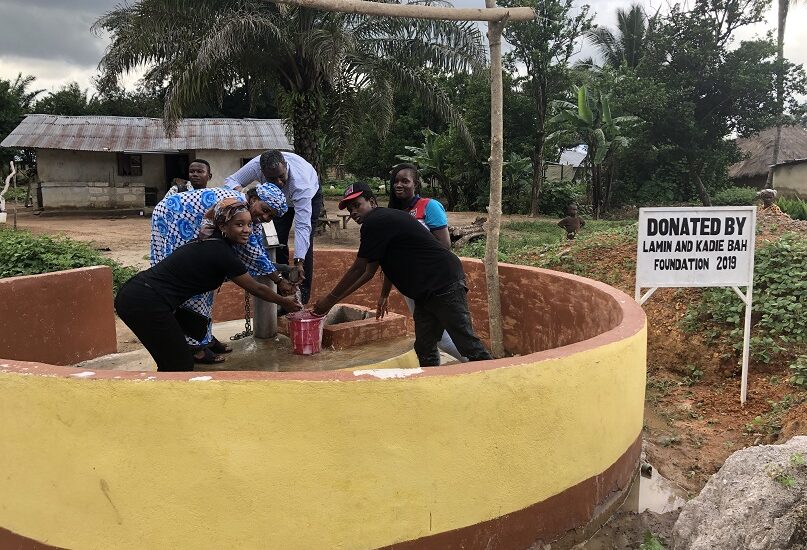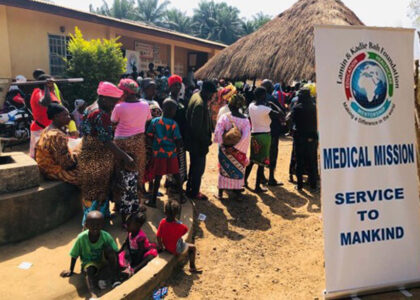Access to clean water in Sierra Leone is a significant challenge, particularly in rural areas. According to the United Nations, only 51 percent of the population in Sierra Leone has access to improved drinking water sources, which are defined as sources that are protected from contamination, such as piped water, boreholes, and protected dug wells. Through contributions from generous donors, the Lamin & Kadie Bah Foundation has built over 10 wells in West Africa.
In rural areas, the situation is particularly dire, with many people relying on unsafe water sources such as streams, ponds, and unprotected wells. This lack of access to clean water puts people at risk of waterborne diseases such as cholera, typhoid fever, and dysentery, which are major health problems in Sierra Leone.
The government of Sierra Leone has been working to improve access to clean water through a number of initiatives, including drilling new boreholes and rehabilitating old ones, building water treatment facilities, and implementing hygiene education programs. However, progress has been slow, and there is still much work to be done to ensure that all Sierra Leoneans have access to clean and safe drinking water.



